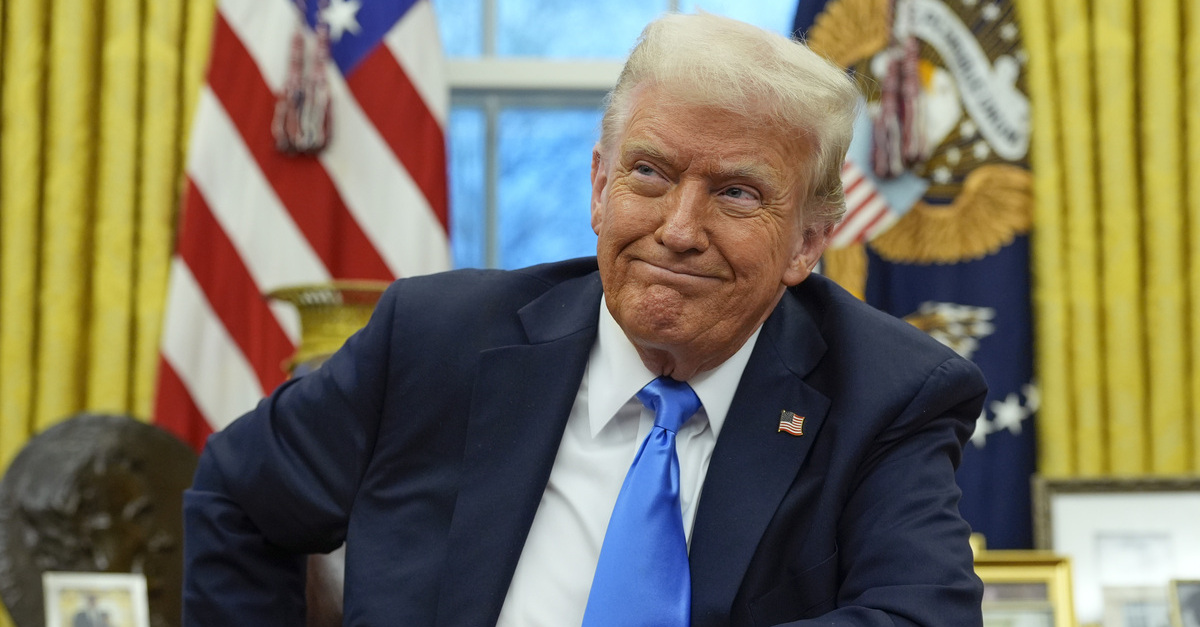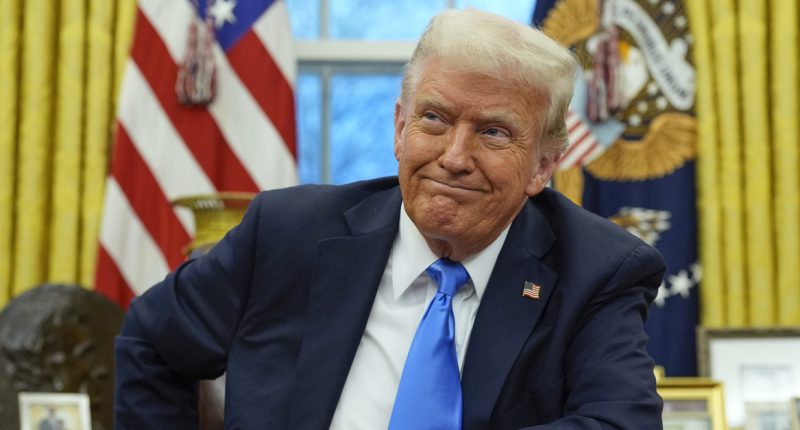
President Donald Trump speaks with reporters in the Oval Office at the White House, Tuesday, Feb. 11, 2025, in Washington, D.C. (Photo/Alex Brandon).
A federal judge in Washington, D.C., on Monday rejected a request from The Associated Press to restore the news organization’s access to certain presidential events following claims it was being unconstitutionally punished for refusing to refer to the Gulf of Mexico as the “Gulf of America.”
U.S. District Judge Trevor McFadden, a Trump appointee, declined to grant a temporary restraining order that would have prevented the administration from keeping the AP out of certain presidential events, particularly those taking place in the Oval Office, on Air Force One, or at Trump’s home in Mar-a-Lago, according to a report from CNN.
McFadden reportedly denied the request for the “extraordinary relief” of a TRO because the AP failed to show it would suffer “irreparable harm” without it, as the organization could still “get access to the same information” through pool notes that are provided to all members of the White House Correspondents Association. The lack of harm was further evinced by the AP waiting more than a week to file its lawsuit, McFadden reportedly said.
While denying the TRO request, McFadden also indicated that he believed the administration would have a difficult time defending its decision when it came time to argue on the merits. He reportedly warned that case law in Washington, D.C. was “uniformly unhelpful” for cases involving journalistic bans and said the ban was a clear example of unconstitutional content-based discrimination.
“It might be appropriate for the White House… to consider if what they’re doing is really appropriate, given the case law,” he warned, according to journalist Jordan Fischer.
In the filed complaint, the AP alleged that the administration unlawfully ordered it to “use certain words” in its coverage “or else face an indefinite denial of access.”
“The press and all people in the United States have the right to choose their own words and not be retaliated against by the government,” the suit states. “The Constitution does not allow the government to control speech. Allowing such government control and retaliation to stand is a threat to every American’s freedom. The AP therefore brings this action to vindicate its rights to the editorial independence guaranteed by the United States Constitution and to prevent the Executive Branch from coercing journalists to report the news using only government-approved language.”
According to the suit, White House officials on Feb. 11, 2025, informed the AP “without prior notice” that its reporters would be barred from entering certain areas as a member of the press pool “unless the AP began referring to the Gulf of Mexico as the Gulf of America, following President Trump’s renaming of that body of water in Executive Order 14172,” which was titled, “Restoring Names That Honor American Greatness.”
The AP continued to refer to the Gulf of Mexico by its original name while also “acknowledging the new name Trump had chosen,” explaining that because it’s a global news agency, it makes such decisions to “ensure that place names and geography are easily recognizable to all audiences.”
The news organization argued that the ban violates the First Amendment and the Due Process Clause of the Fifth Amendment, while also constituting impermissible retaliation for constitutionally protected speech.
The administration responded by asserting that the AP is only being denied “special media access to the President,” which it claims is a “quintessentially discretionary presidential choice that infringes no constitutional right.”
The 23-page opposition motion argues that the AP does not have the right to “unfettered” access to Trump’s “exclusive gatherings,” such as events taking place on Air Force One, in the Oval Office, or at the president’s home in Mar-a-Lago, for which many other news agencies are denied access.
“Just as the President need not furnish a personal interview to all journalistic comers, the President has discretion to decide who will have special media access to exclusive events within the Oval Office,” the administration wrote. “The President has absolute discretion to give interviews to whomever he pleases — the First Amendment does not compel him to give a personal audience to any particular journalist. That same discretion extends to whom he allows into the Oval Office (his personal workspace), Air Force One (his personal plane), and Mar-a-Lago (his private residence). The President’s discretion over these small spaces simply does not implicate constitutional rights — for citizens, journalists, or news organizations alike.”
A hearing on the AP’s request for a preliminary injunction is currently scheduled for March 20.



